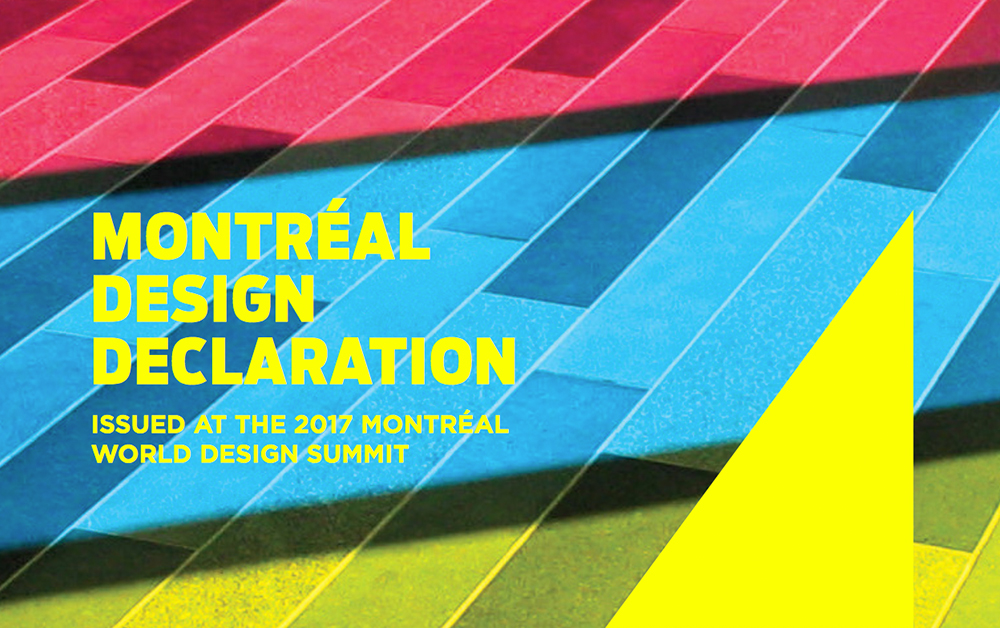
On 24 October 2017, representatives of the international community of designers, architects, planners and landscape architects signed the Montreal Design Declaration. The Declaration proclaims the potential of design to achieve global economic, social, environmental and cultural objectives and includes a dramatic call to action to professionals, educators and governments as well as a list of proposed projects.
“All people deserve to live in a well-designed world.“
The first Design Summit Meeting (DSM) marks the first international convening of the design community, across a broad spectrum of design disciplines, together with a strong array of international organisations, with cultural, economic, environmental and social perspectives. The design organisations present represent hundreds of thousands of designers from around the globe. The international bodies represent governmental, IGOs, NGOs and private and civil sectors of society worldwide.
Thanking the organisers of the World Design Summit for having convened this meeting, we have come together,
- To express a shared view of the crucial role of design and the great responsibilities of designers;
- To affirm the fundamental role of design in creating and shaping the world around us, now and in the future.
- We, the undersigned international representatives of professional designers, architects, urban planners, landscape architects and other design-related disciplines,
- In the presence of international organisations representing and relating to public, private and civil sectors of society concerned with design and or impacted by design;
Cognisant of the diverse range of contexts, both formal and informal, where design has an impact;
Mindful of the immeasurable value of local and traditional knowledge for appropriate and innovative design solutions;
Sentient of the demand of communities, large or small, local or global, for decent living conditions and which design can help address;
Recognise the need for strategic leadership on design matters at local, regional, national and international levels and with this, the need for governance models, political agendas and policy to take design into account;
Recognise the need for sufficient fiscal and human resources and capacity;
Acknowledge the intrinsic capacity of design to serve as an agent of change and a source of creative transformation;
Acknowledge the fundamental and critical role of design to create a world that is environmentally sustainable, economically viable, socially equitable, and culturally diverse;
And confirm the value of working in a collaborative, holistic and integrated way to foster design of common benefit.
VALUE OF DESIGN
- DESIGN IS the application of intent: the process through which we create the material, spatial, visual and experiential environments in a world made ever more malleable by advances in technology and materials, and increasingly vulnerable to the effects of unleashed global development.
- Design is a driver of innovation and competition, growth and development, efficiency and prosperity.
- Design is an agent for sustainable solutions created for people and supporting the planet on which we rely.
- Design expresses culture. Designers have a particularly potent role in making, protecting, nourishing, enhancing and celebrating cultural heritage and diversity in the face of globalisation.
- Design adds value to technology. Through consideration of human perspective and interface, and by focusing on individual interaction first, design bridges technology with human needs.
- Design facilitates change. Design enables all aspects of society, public and private, governmental and non- governmental, civil society and individual citizen, to transition through change (i.e. austerity, demographic changes, shifts in services) to deliver a better quality of life for all citizens.